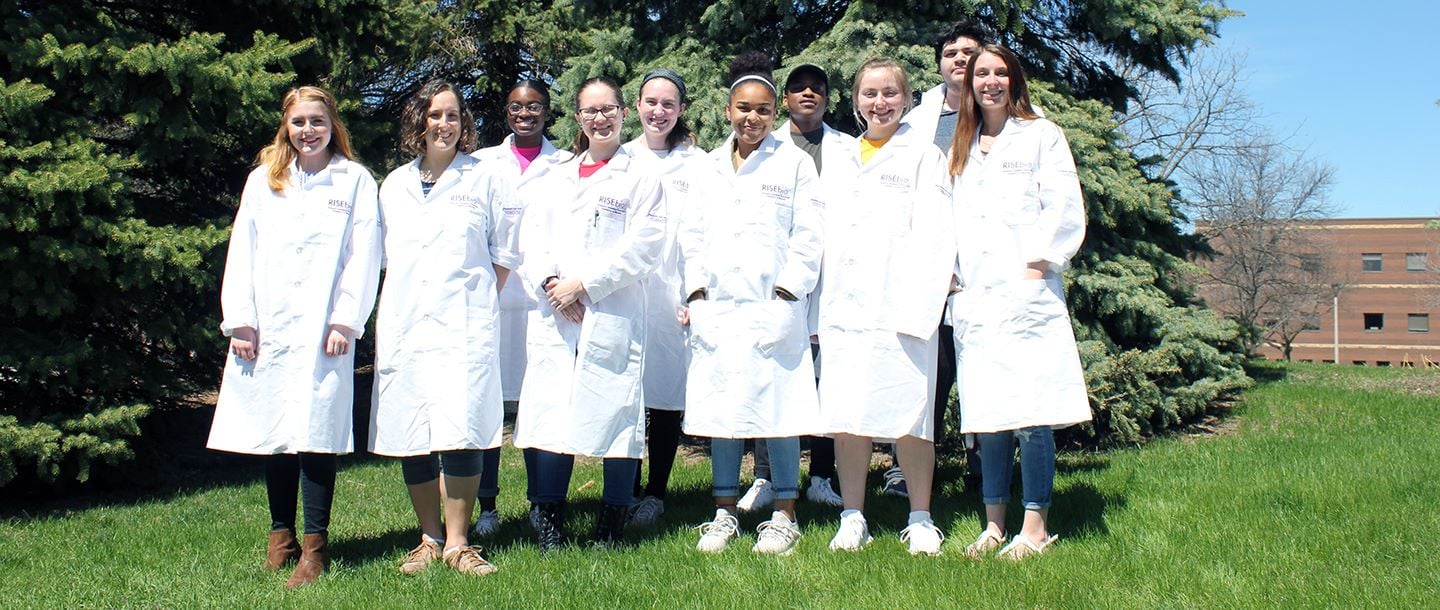

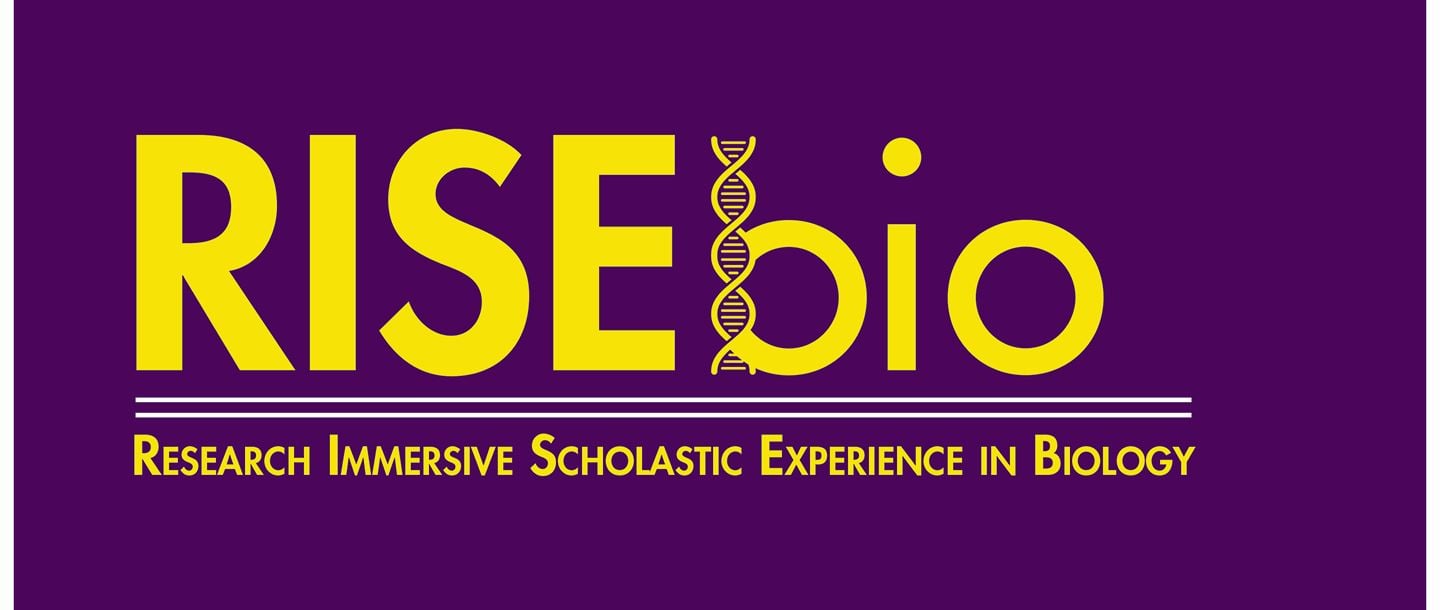
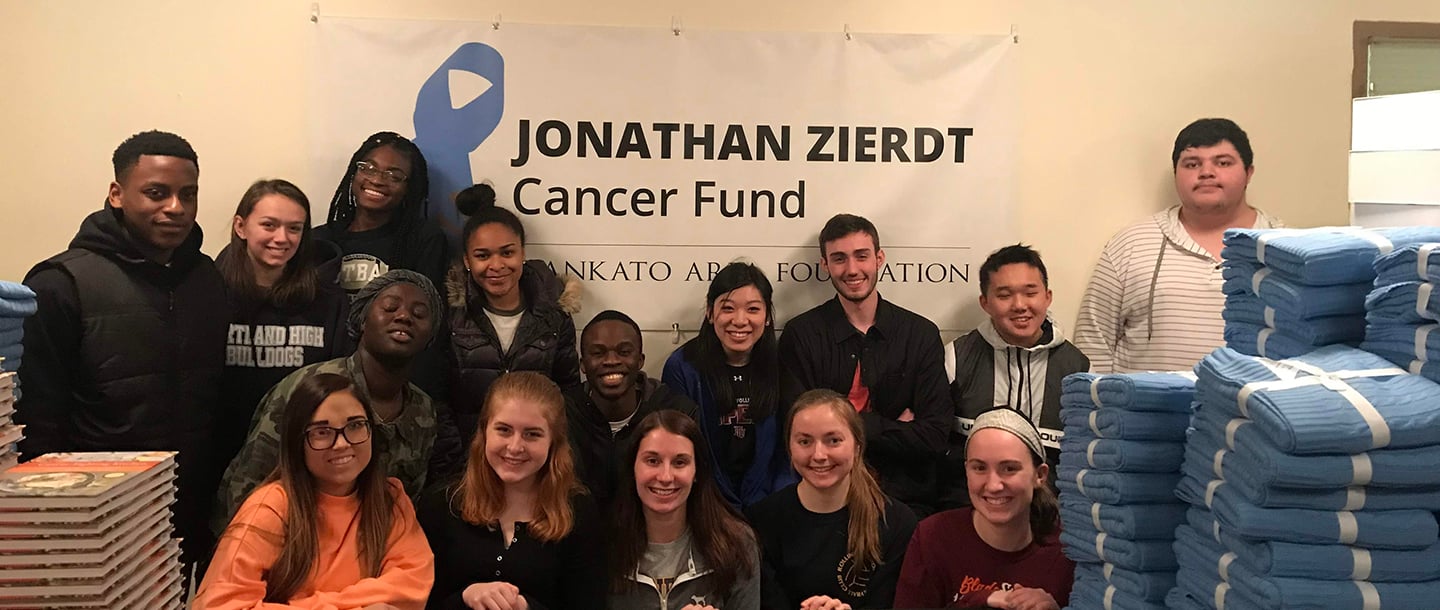
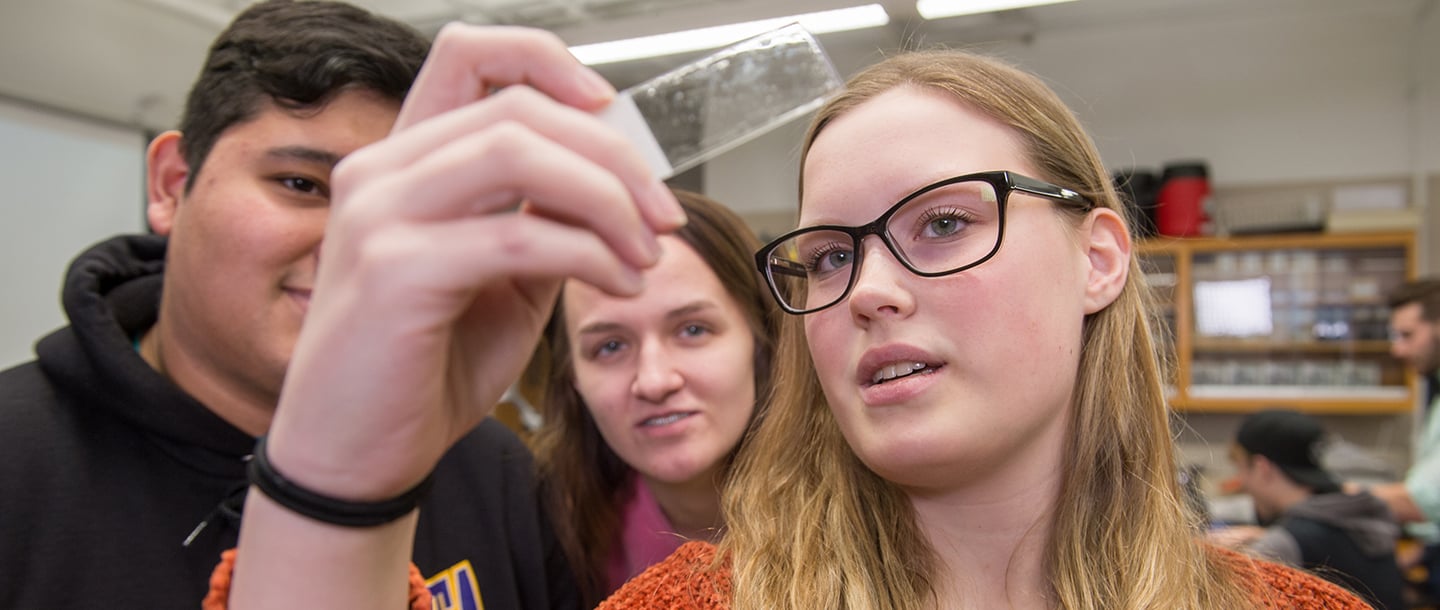
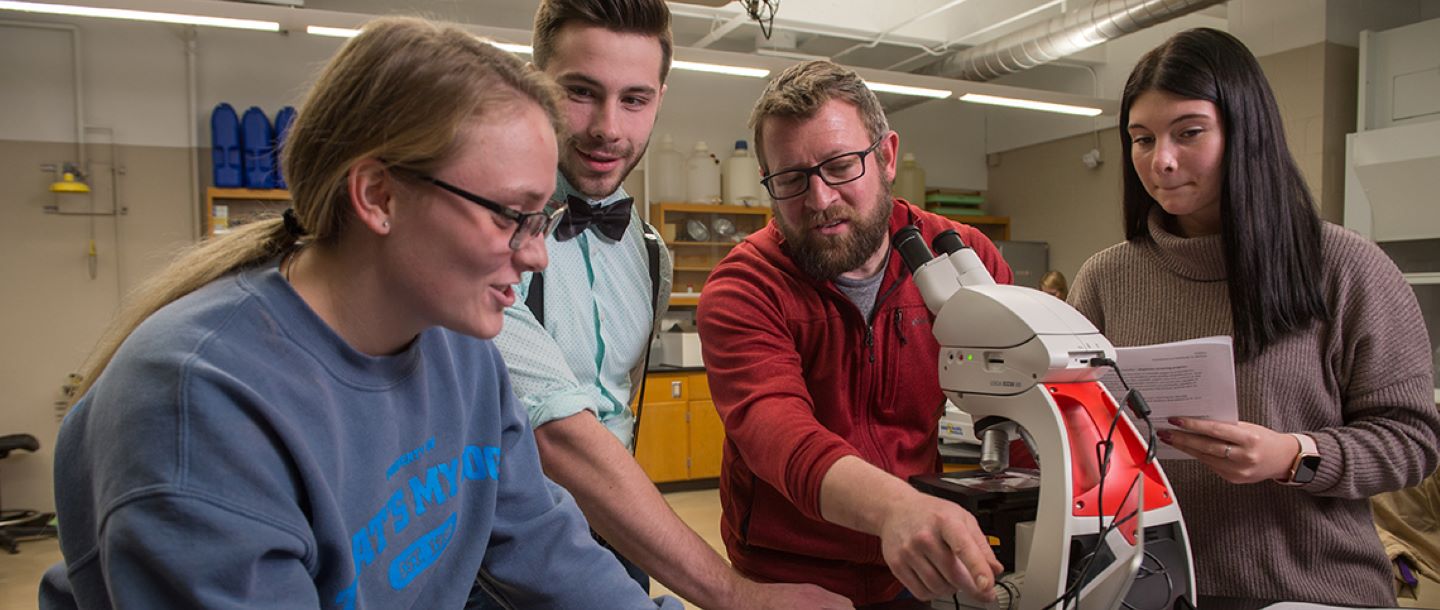
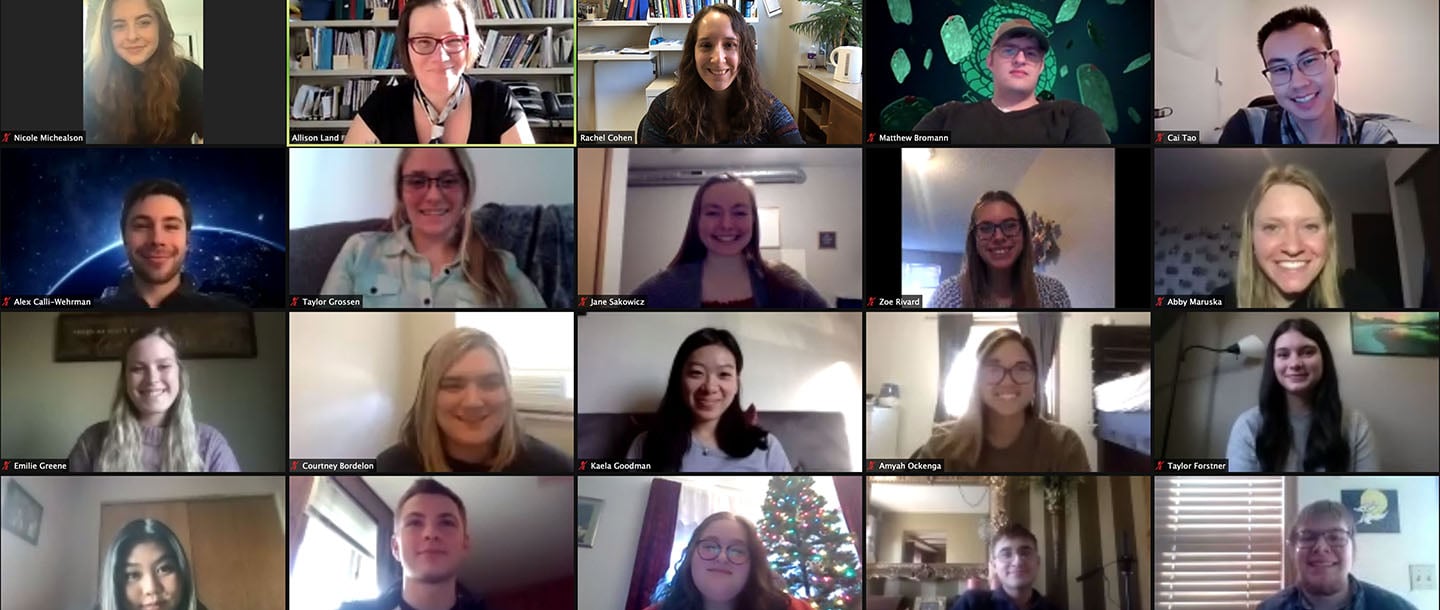
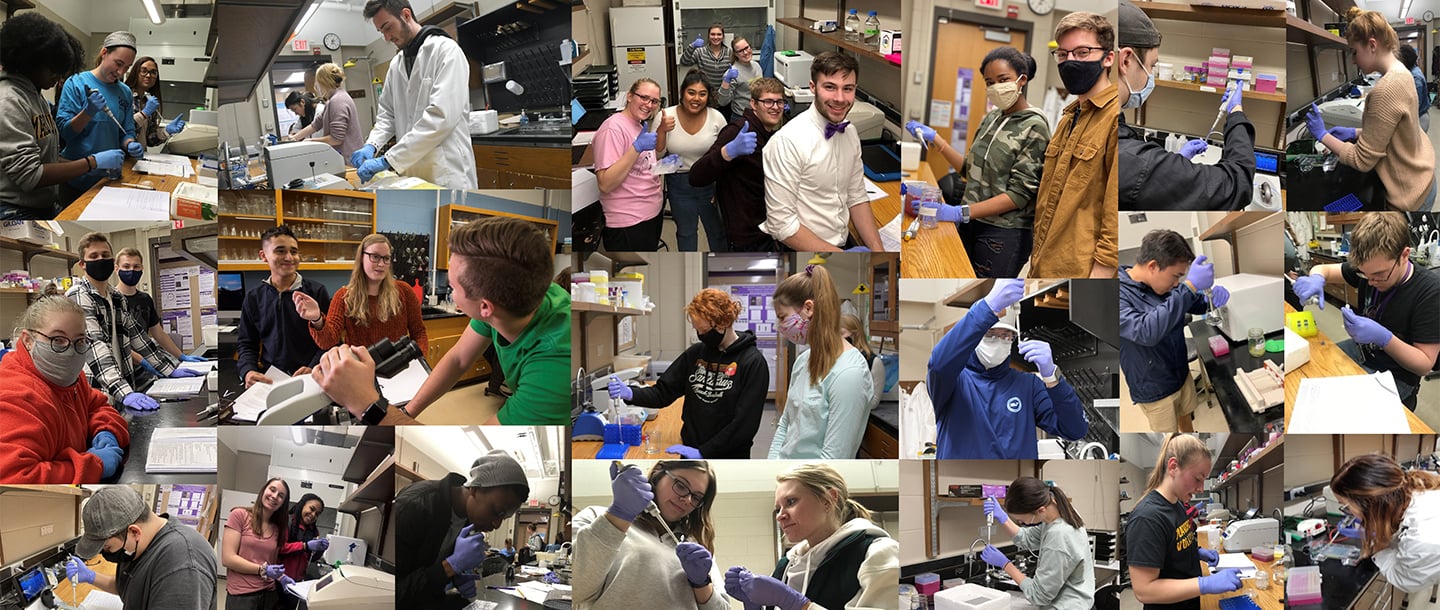









RISEbio is a National Science Foundation funded program that bridges social integration, vertical mentoring, and an authentic research experience to enhance student academic success. The program provides participants opportunities through-out the entire 4 years of college.
RISEbio gives entering first-year students interested in pursuing a degree in biology or biochemistry the opportunity to engage in real-world research with faculty, peer mentors, and graduate students. RISEbio participants are also part of a learning community during their first year. The learning community provides early and preregistration to specific courses as well as structured study groups, and mentor support. However, RISEbio participants are free to select their own housing and are not required to live together in on-campus housing.
Prospective students submit an application to participate in RISEbio. All students are welcome to participate, but space is limited. If selected, you join the RISEbio learning community during your first semester and select a research stream during your second semester. Participants will also participate in a First Year Seminar (FYEX) that is designed to assist students with the transition to the university.
After the third semester, RISEbio participants are supported through pop-up events that maintain social interactions and provide career development opportunities.
In their second semester on campus, RISEbio participants join a research team where they will work on mentored research projects with faculty, graduate assistants, and peer mentors. Depending on the semester, different research streams are available for students to join:
(1) Brain and Behavior – Led by Dr. Rachel Cohen, the Brain, and Behavior group is working to identify novel genes expressed in the brain that control reproductive and aggressive behaviors. Learn More
(2) Plants and Environmental Stress – Led by Dr. Matthew Kaproth, the Plants and Environmental Stress group is working to determine the traits by which plants acclimate and/or adapt with to survive within their environments or deal with climate change. Learn More
(3) Biochemistry - Proteoglycans in Cancer, Aging in Muscle, and Vitamin A Biology - Led by Drs. Samantha Katner, Rebecca Moen, and Charlie Krois. Biochemistry majors participating in RISEbio participants will join a biochemistry stream focused on proteoglycans in cancer, aging in muscle, or vitamin A biology. Learn More
(4) Thyroid Hormone, Environment, and Development - Led by Dr. David Sharlin, the Thyroid Hormone, Environment, and Development group is working to understand whether environmental chemicals can disrupt thyroid hormone action in development with a specific focus on the nervous and sensory systems. Coming Spring 2025! LEARN MORE
(1) Immunity and Cancer – Led by Dr. Allison Land, the Immunity and Cancer group is working to determine the mechanisms by which host immune proteins that mutagenize viral DNA are kept from damaging cellular genomic DNA. Learn More
2) Bacteria and Disease - Led by Dr. Yongtao Zhu, this research stream worked to identify virulence factors (disease causing) in Flavobacterium psychrophilum, the bacteria responsible for bacterial cold-water disease (BCWD) in salmonid fishes including rainbow trout. Learn More
Most students will qualify to participate. However, due to space limitations and an application process is in place. Basic eligibility criteria include:
To be considered for a NSF funded RISEbio scholarship, students must meet specific financial eligibility set by NSF. However, students DO NOT need to qualify for scholarship to apply. To be considered for scholarship funds, the following must be met:
Please note that students do not need to qualify for needs-based scholarship funds to participate in RISEbio. The RISEbio program wants to support all students interested in participating.
Applicants will first be asked for permission to provide the RISEbio program access to certain application materials that are part of the Minnesota State Univeristy Mankato General Application. Access to this information reduces the application length and the need to re-enter certain information already on file with the University.
Applications are now being accepted for Fall 2026 - Click here to apply!
Still have questions? Contact the RISEbio program coordinator, Dr. Rachel Cohen - rachel.cohen@mnsu.edu.
RISEbio is a National Science Foundation (NSF) supported program that provides a unique learning experience by building a supportive community of peers and offering authentic research experiences that develop advanced technical skills enhancing future employment opportunities. During the first-year, RISEbio participants also participate in a learning community that offers a peer network, preregistration for learning community courses, and faculty interactions.
No extra course work is required to participate in RISEbio. All RISEbio-associated credits count directly towards graduation.
RISEbio is now accepting participant nominations!!!
Are you an educator, counselor, or other student advocate and know a student that would benefit from participating in the RISEbio Program? Then we want to hear from you!
Click here to nominate a student!
Focused on identifying novel brain-expressed genes that control reproduction and territorial behaviors in the seasonally breeding green Anole lizard.
Focused on identifying functional traits that enable a plant to survive drought, heat and other environmental stresses.
Explore the biochemistry stream projects